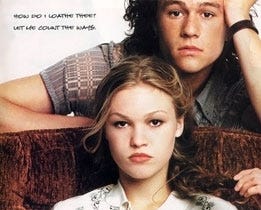Confessions from an unpleasant woman

🌈 Abstract
The article discusses the author's perspective on the perceived increase in pickiness and unpleasantness among young women in the dating market, and how this may be a response to changes in social norms and the prevalence of casual sex.
🙋 Q&A
[01] The author's investigation of high school movies
1. What were the key differences the author observed between high school movies from the 1990s and modern-day "teen movies"?
- In the 1990s movies, high school was depicted as a universe centered around friendship and romantic love, with girls being more agreeable and stereotypically "nice" and "attractive"
- In modern "teen movies", high school is portrayed as a bleak place that protagonists aim to get through to reach college, with female protagonists learning that there can be more to life than just studying and getting to college
2. How did the author's personal experience as a young woman relate to the observed changes in female behavior in the dating market?
- The author learned that young women need to exhibit varying levels of "unpleasantness" depending on the situation, with more unpleasantness required in situations where casual sex is common
- After pregnancy and leaving home without a baby, the author initially struggled to regain the appropriate level of "unpleasantness" to protect herself, leading to uncomfortable experiences
[02] The author's perspective on the casual sex market and societal norms
1. How does the author view the dynamics between men and women in the casual sex market?
- The author sees men in the casual sex market as "beggars" who use tactics to catch women's attention and steer conversations towards casual sex
- Therefore, young women need to learn to be "unfriendly" to men, similar to how people learn to be unfriendly to beggars, in order to protect themselves
2. What are the author's thoughts on the role of societal rules and norms in regulating relationships and sexual behavior?
- The author suggests that in the absence of explicit societal rules, the burden falls on individual women to "radiate" that they do not consent to unwanted advances
- The author believes that the abolition of traditional relationship rules has led to the development of informal "no-flirting" norms, which may allow women to be less unpleasant in everyday life, but still requires them to be unpleasant when dating to protect themselves
3. How does the author view the evolution of the "bimbo" stereotype and its implications?
- The author notes that the "bimbo" look has become mainstream, but the associated credulous personality is now out of fashion, as feminism has empowered women to stand up for themselves rather than relying on being taken care of
4. What does the author suggest as a more sympathetic strategy for young women to signal their value in the dating market?
- The author suggests that thinking carefully about what one is looking for and actively seeking out appropriate places to find that may be a more constructive approach than simply being unpleasant